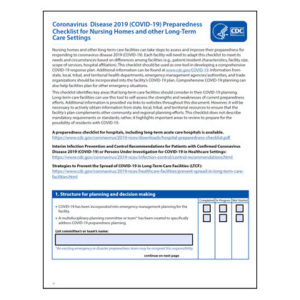Innovation program to reduce nursing home hospitalizations
The Center for Innovations is optimistic about a project designed to reduce avoidable hospital admissions for nursing home residents.
The Centers for Medicare & Medicaid Services (CMS) has invested $16.9 million in phase 2 of Indiana University’s project for Optimizing Patient Transfers, Impacting Medical Quality and Improving Symptoms: Transforming Institutional Care (OPTIMISTIC).
During the four-year phase 1, nurses and nurse practitioners embedded in 19 central Indiana nursing homes provided direct support to long-stay residents and education and training to staff. An independent evaluation of the phase 1 clinical program is already showing positive results.
Those specially trained professionals will remain in place during phase 2 plus an additional 25 nursing homes. During the four-year phase, the sites will implement a new CMS payment model that incentivizes facilities as their medical staffs to provide higher levels of care on site rather than sending residents to the hospital.
"Under the current CMS payment system, nursing facilities do not receive additional reimbursement to provide the care needed by residents who become sicker unless the nursing home sends them to the hospital and then readmits them to the nursing home under the Medicare post-acute care benefit," says Project Director for OPTIMISTIC Phase 2 Kathleen Unroe, MD, MHA, Indiana University Center for Aging Research and Regenstrief Institute scientist, IU School of Medicine assistant professor, in a press release. "There is no mechanism in place for CMS to pay nursing homes for ramping up nursing care and other care services needed when a resident becomes sicker. In phase two of OPTIMISTIC, CMS supports testing to see if unnecessary hospitalizations will decrease if they provide nursing homes incentives to provide care in place."
The new payment model will fund short-term on-site acute care for nursing home residents who have one or more of the following six conditions attributed to nearly 80 percent of potentially avoidable hospitalizations: pneumonia, urinary tract infections, congestive heart failure, COPD/asthma, skin infection and dehydration.
OPTIMISTIC is one of six sites nationwide participating in this CMS Center for Innovations funded nursing home demonstration project and has received more than $30 million of funding since 2012.

Nicole was Senior Editor at I Advance Senior Care and Long Term Living Magazine 2015-2017. She has a Journalism degree from Kent State University and is finalizing a master’s degree in Information Architecture and Management. She has extensive studies in the digital user experience and in branding online media. She has worked as an editor and writer for various B2B publications, including Business Finance.
Related Articles
Topics: Clinical , Executive Leadership , Medicare/Medicaid , Staffing











